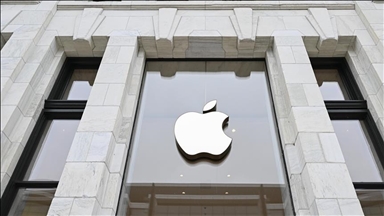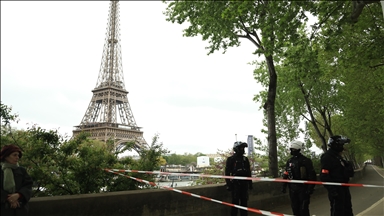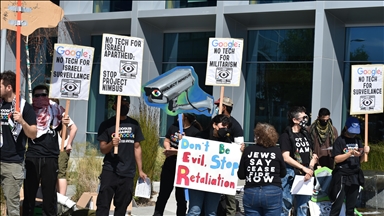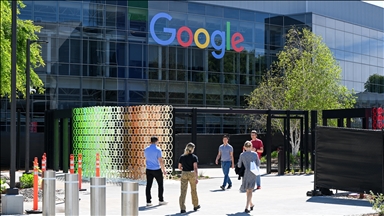Advocates oppose weakening encryption after Paris attacks
Just because criminals utilize a new technology doesn’t mean authorities should stop innovation, crypto expert says

By Barry Eitel
SAN FRANCISCO
After deadly attacks ripped through Paris and Beirut, authorities have once again raised concerns about powerful device encryption that allows undetected communication.
The issue is a 2015 version of a debate that harkens back to the dawn of civilization – the balance between the safety of citizens and personal liberty and privacy.
But renewed demands for tech companies to allow law enforcement special access to user communication have been strongly criticized as misguided.
For years, government agencies have requested legislation that requires manufacturers to build backdoors into encryption software to allow authorities to eavesdrop on electronic communication.
Silicon Valley giants have long claimed that weakening decryption for governments also opens up vulnerabilities to hackers.
While the Obama administration wants to persuade tech giants like Apple and Google to work with law enforcement, last month it decided to drop a push supported by the FBI director for so-called backdoors and not coerce companies to breach the encryption of their own products.
Google and Apple did not respond to Anadolu Agency requests for comments and Microsoft sad the company was “unable” to provide one at this time.
The encryption issue is sure to become a major topic during the 2016 U.S. presidential race.
Democratic front-runner Hillary Clinton voted in 2001 as a senator for the Patriot Act that gave broad surveillance authority to the NSA soon after the Sept. 11 terrorist attacks. But she also voiced support for the Freedom Act passed earlier this year that ends the same program.
Republican front-runner Donald Trump strongly favors government surveillance and releasd ads in support of more snooping, particularly of mosques and Muslim communities.
Dr. Ben Carson has on several occasions criticized the NSA’s data bulk collection.
Republican candidates who have the most support in Silicon Valley, Jeb Bush and Marco Rubio, have sided with undermining encryption.
The Electronic Frontier Foundation (EFF), a non-profit digital advocacy group, is wary of governments utilizing the recent attacks as an argument for weakening cybersecurity for consumers.
“We were shocked and saddened to learn of the attacks in Paris and Beirut,” EFF Executive Director Cindy Cohn told Anadolu Agency. “But these heinous attacks must not be used to justify further erosion of our security, civil liberties or privacy.”
Cohn warned that it is dangerous to conclude, before all the evidence has emerged, that encryption software allowed Daesh to hide its communications from the government.
“At this point there is no confirmation that end-to-end encryption was used by the attackers, much less that the use of that encryption is what led the world’s intelligence services to fail to detect the plot before the tragedy,” Cohn said. “What we do know is that strong encryption is crucial to allow political organizers, government officials and ordinary people around the world to protect their security, privacy and safety from criminals and terrorists alike.”
The tech community claims that once created, there is no way to guarantee hackers will not exploit backdoors.
According to cryptographer Philip Zimmermann, developer of pioneering encryption software PGP, strong encryption and public safety are actually closely linked.
“In my view, focusing on security has to include strong encryption because when people have to travel or companies have to do business in other countries where there is a lot of interception of communication then they are going to need strong crypto to protect themselves from having their communications intercepted, either by these governments or criminal elements,” Zimmermann told Anadolu Agency.
“Secure communications is important to protect people from harm,” he adds. “It’s not just an issue of civil liberties, it’s also an issue of safety.”
The debate about encryption and government access dates back to the early days of the Internet in the 1990s, where a decade-spanning discussion resulted in the strong encryption Americans now enjoy in their iPhones and laptops.
“This debate had people from law enforcement, from intel agencies, from the computer industry, cryptographers, academics, the legal community, the court system, the Congress, human rights groups, journalists, you know, everybody was involved and the debate spanned many years,” sai Zimmermann, who is currently working on secure telephony technology.
He added that the strong encryption that flourished in the 2000s was accepted by a near consensus.
Strong encryption on email communication, web browsers and smartphones protects users from criminals ranging from sophisticated hackers to iPhone thieves.
“The Internet is a very hostile place and protecting Internet communications and protecting your devices, these things are accomplished with crypto – and that reduces crime,” he claims.
Just because criminals utilize a new technology, Zimmermann argues, doesn’t mean authorities should stop innovation.
We still use GPS even though 9/11 attackers used the Pentagon-developed tracking system. After Bonne Parker and Clyde Barrow used automobiles to flee after robbing banks in the 1930s, Zimmermann points out, police asked automakers to make cars with smaller fuel tanks.
“Cryptography is important for protecting the good guys from the bad guys,” he says, noting that he originally created the PGP software, now popular with the business community, to protect the communications of human rights workers.
Blame for the Paris attacks has also been pointed at Edward Snowden, the whistle-blower who revealed the NSA was collecting communication data on millions of unsuspecting Americans.
CIA Director John Brennan said “a number of unauthorized disclosures” were at fault for allowing the attackers to avoid detection, in an apparent reference to Snowden.
Daesh, al-Qaeda and other extremist groups used encrypted email software and secure cell phone connections years before Snowden made his revelations, according to Glenn Greenwald, the journalist to which Snowden chose to reveal his findings.
Specifically, Greenwald points to terror bombings in London and Mumbai, as well as at the Boston Marathon bombing in 2013, which occurred several months before Snowden leaked NSA documents.
“Any terrorist capable of tying his own shoe -- let alone carrying out a significant attack -- has known for decades that speaking on open telephone and Internet lines was to be avoided due to U.S. surveillance,” Greenwald said in a blog post.
With the amount of conflicting information in the wake of a tragedy, it can be confusing as to where everyday Internet users fit in the clash between governments and Silicon Valley.
What should the average person do now that encryption is facing scrutiny about its role in recent attacks?
“Keep using encryption,” Greenwald told Anadolu Agency.
Anadolu Agency website contains only a portion of the news stories offered to subscribers in the AA News Broadcasting System (HAS), and in summarized form. Please contact us for subscription options.







